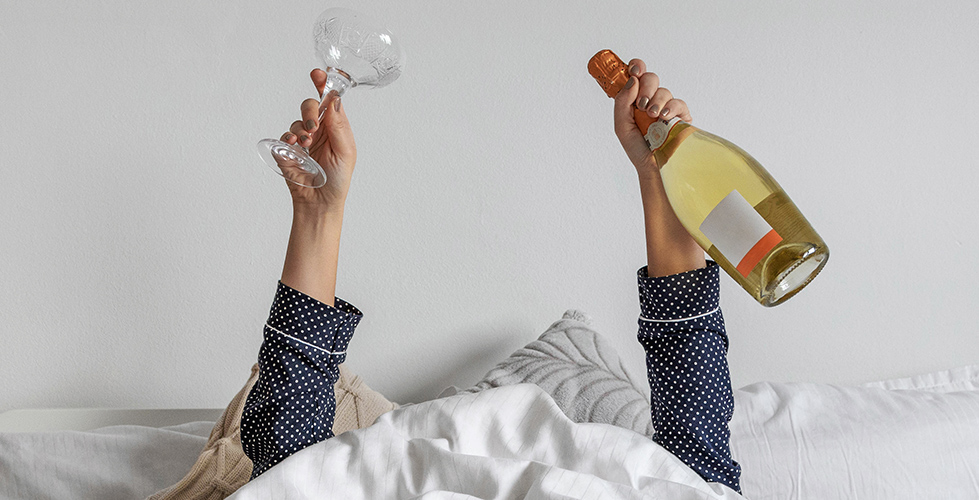Contrary to popular belief, a nightcap does not help you sleep better. In fact, numerous studies show that although alcohol may allow you to fall asleep faster and sleep more deeply at the beginning of the night, it suppresses the psychologically restorative REM (dream) sleep. Without enough REM sleep, you can wake the next day experiencing moodiness, exhaustion, poor concentration, and daytime sleepiness. The more you drink, the more pronounced these effects are.
Without alcohol, a healthy person usually enters REM sleep within the first 90 minutes after falling asleep, and then cycles in and out of REM sleep 6 or 7 more times through the evening. Under the influence of alcohol, the lighter stages of sleep are increased while REM sleep is diminished during the first portion of the night. Later in the evening, the alcohol may be metabolized, however, it can still cause withdrawal symptoms, including shallow sleep, multiple awakenings, and REM rebound associated with sweating, nightmares, and restless sleep. In addition, alcohol suppresses breathing and can exacerbate sleep apnea, as well as increasing the chances of sleepwalking and sleep talking.
Most research shows that one drink (a 12-ounce beer, a 4-ounce glass of wine, or 1 ounce of hard spirits) seems to have a minimal effect on sleep. If you drink in the evening, try to avoid it too close to bedtime in order to give the liver time to metabolize the alcohol.
Alcohol should never be used as a sleep aid, and regular use can lead to alcohol dependence. Alcohol’s impact on sleep is cumulative.
Alcoholics often complain of a permanent, negative effect on their sleep, including difficulties falling asleep, multiple awakenings, and a decrease in the delta (physically restorative) and REM stages of sleep.
Sleep problems and the excessive use of alcohol should be addressed with the help of a qualified professional. Without help, it is easy to get caught in a vicious cycle of using alcohol to “help” fall asleep, making it even more difficult to get the right amount and kind of sleep in the long run.
Jeffrey L. Santee, Ph.D., is a clinical psychologist with advanced training in cognitive and health psychology. In addition to his work in men’s and marital issues, he specializes in the treatment of depression, anxiety disorders, and stress-related health problems.



Comments are closed.